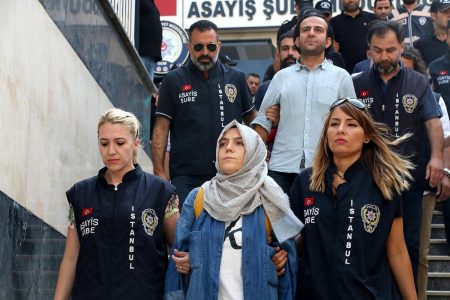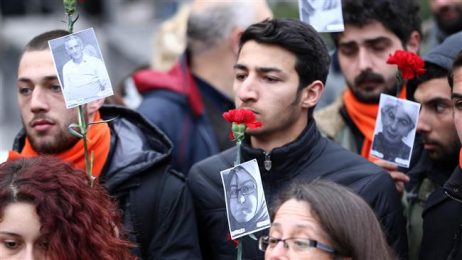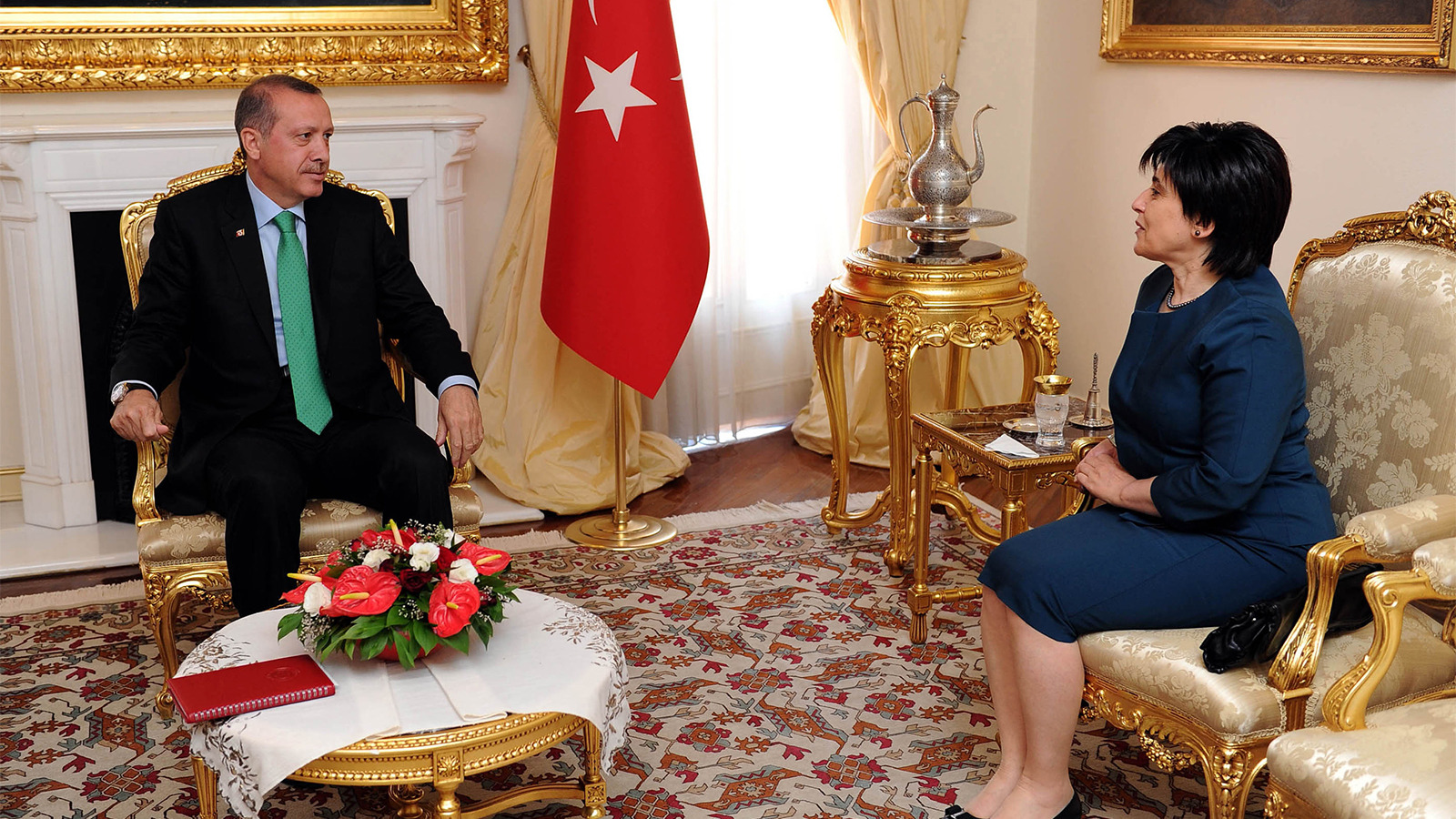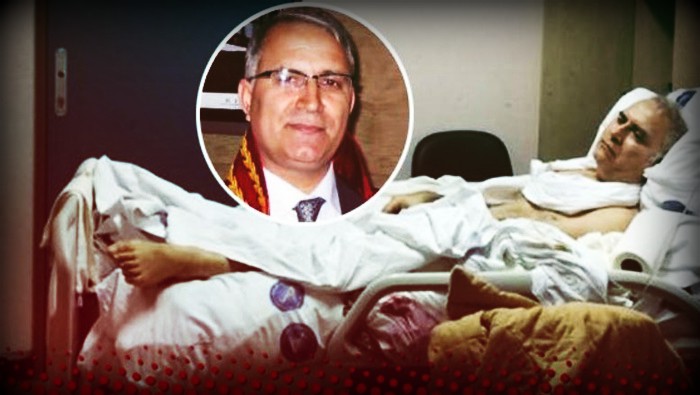[authorbox authorid=”32″ ]
The AKP’s false dawn
[dropcap size=big]T[/dropcap]he Justice and Development Party (Adalet ve Kalkinma Partisi, or AKP) government that came to power in Turkey November 2002 enjoyed an auspicious start. It lent its support to the UN plan for resolving the Cyprus problem, and built upon the EU-friendly reforms that had been initiated by the preceding coalition government, and was rewarded with EU accession negotiations that commenced in October 2005. It embarked on a ‘peace process’ aimed at resolving the country’s Kurdish problem, and softened restrictions on use of the Kurdish language. Notwithstanding a 2007 attempt by the country’s General Staff to obstruct Abdullah Gul’s elevation to the presidency, and the Constitutional Court’s 2008 bid to ban the AKP, the AKP’s one-party rule seemed to endow the country with an unfamiliar air of political stability.
Turkish democracy, the rule of law, and the freedom of its institutions from government interference had long been fragile, but there now appeared to be a basis for hope. Sadly, the honeymoon didn’t last although electorally the AKP went from strength to strength, winning 49.8%, 40.87% and 49.87% of the vote in June 2011, June 2015 and November 2015 respectively, while in August 2014 Erdogan won 51.97% of the vote in the country’s first ever directly elected presidential contest. The government used this foundation to turn on its opponents and embark on a polarisation of the country that is stark even by Turkey’s standards.
Many democrats and liberals initially welcomed the so called ‘Ergenekon’ and ‘Balyoz’ investigations and trials into alleged coup-plotting and the ‘deep state’, believing that they represented an attempt to cleanse Turkey of the military’s excessive political influence and of shadowy activities that had haunted the country’s political life. Hundreds were sentenced to prison, some for life, including a former chief of the General Staff. However, it was evident that much of the evidence against them was fabricated and that due process was not followed. In parallel with these trials, between 2009 and 2012 around 8000 Kurdish politicians, activists, journalists and the like were arrested, again often on false charges, which raised questions about the government’s commitment to seek a political solution.
Clearly, the rule of law was shaky in AKP-ruled Turkey too. Prime minister Recep Tayyip Erdogan’s language became ever more illiberal, confrontational and ‘Islamist’ in content. The resulting polarisation contributed to the ‘Gezi Park protests’ of 2013, which soon blossomed into a nationwide movement against the government’s perceived authoritarianism. The harsh police crackdown, fully applauded by the government, resulted in eleven deaths, 8000 injuries and over 3000 arrests. The repression of secular media outlets, journalists, academics, social media users and the like, has continued ever since. Little is now left of the secular – or indeed any non-AKP – independent media. Reporters Without Borders has recently placed Turkey 157th out of 180 countries on its press freedom index.
The purge of Gulenists
However, Turkey’s descent into autocracy snowballed with the outbreak of open warfare between Erdogan and the movement led by the exiled cleric Fethullah Gulen. Gulenists had allied with the AKP in their shared ambition to push back the secular elite and enhance the influence of Muslim conservatives. Indeed, Gulenist police and lawyers had been central to both the Ergenekon and Balyoz affairs and to the pursuit of Kurdish activists – Gulen was uncomfortable with the government’s overtures to the Kurdish movement. However, Erdogan was now feeling increasingly threatened by the extensive presence that Gulenists had established throughout Turkish state and society. Thus, in November 2013, he announced the closure of private examination prep schools, or dershanes, roughly a quarter of which were run by Gulen’s followers. A few weeks later, on 17 December 2013, Gulen-affiliated policemen and lawyers detained a number of people, including the sons of three cabinet members, on various corruption charges. Erdogan’s family members too were implicated. Erdogan accused the Gulen network of being behind the investigation, and described it as a ‘parallel structure’ bent on capturing the state. War had broken out.
Within weeks, hundreds of police officers and judges were dismissed, as the purge extended to the bureaucracy, the education sector, the media, businesses, and beyond. Typically, no reasons was given for the dismissal from government institutions of allegedly Gulenist staff, and no right of appeal was allowed. Dozens of journalists and media executives working for the Gulen-inspired Samanyolu media outlet were arrested in December 2014, Bank Asya was taken over by government administrators in mid-2015, government trustees were appointed to run the Gulen-affiliated Koza Ipek corporation in October 2015, and five of its media outlets were shut down a few months later. Zaman newspaper was taken over by the government in March 2016. Government trustees were similarly appointed to head a wide range of allegedly Gulen institutions, such as Fatih University in Istanbul.

The persecution of alleged Gulenists deepened further in the wake of the failed coup attempt in July 2016. Erdogan immediately declared that the coup had been ordered by Fethullah Gulen and led by Gulenist officers and plotters. The network had already been dubbed the Fethullah Terrorist Organisation (Fethullahci Teror Orgut, or FETO) in May 2016. A state of emergency was declared, and remains in place to this day, renewable every three months.
The detention or dismissal of alleged Gulen sympathisers escalated, and is ongoing. To date, over 150000 public servants, including judges, police officers, civil servants and teachers, have been dismissed or suspended, over 50000 of whom have been arrested, including three ambassadors, and over 400000 have been investigated for alleged links to the Gulen movement. Over 4000 judges and prosecutors have been dismissed, of which 570 have been arrested and almost around 80 given long prison sentences. Any lawyer or policeman raising objections to the process, or who acts on behalf of a defendant, might also be charged with supporting a terrorist group or some other such accusation. Tens of thousands of individuals have been denied passports.
A wider repression
However, Gulenists are not the only targets of the government’s repression. The end of the Kurdish ‘peace process’ in Turkey in 2015 led to fierce military bombardments of Kurdish towns and  cities such as Diyarbakir, Sirnak and Cizre. Hundreds were killed and tens of thousands displaced as lengthy curfews were imposed. Twelve of the HDP’s 59 parliamentary members have been arrested, including its two co-chairs, and three HDP MPs have been stripped of their parliamentary status. In September 2016 pro-government trustees were appointed to run 28 municipalities, 24 of which had been run by Kurdish parties. Many Kurdish city and district mayors, local politicians, and pro-Kurdish or otherwise critical activists, lawyers, academics and journalist had already been detained or suspended.
cities such as Diyarbakir, Sirnak and Cizre. Hundreds were killed and tens of thousands displaced as lengthy curfews were imposed. Twelve of the HDP’s 59 parliamentary members have been arrested, including its two co-chairs, and three HDP MPs have been stripped of their parliamentary status. In September 2016 pro-government trustees were appointed to run 28 municipalities, 24 of which had been run by Kurdish parties. Many Kurdish city and district mayors, local politicians, and pro-Kurdish or otherwise critical activists, lawyers, academics and journalist had already been detained or suspended.
The government’s increasing grip on the country’s Higher Education Council (Yuksekogretim Kurulu, or YOK), has been used to interfere in academic appointments, promotions, and study trips abroad, and to impose pro-government rectors. Secular officers in the Turkish military have also been heavily purged by nationalist and Eurasianist groups that have attached themselves to Erdogan’s rule, such as Dogu Perincek’s Patriotic Party and the Islamist and nationalist Sadat group. Turkish officers assigned to NATO and to embassies in the west have been particularly badly affected. Many have sought asylum elsewhere.
The state of emergency has also led to hundreds of changes to existing laws, but laws passed in the wake of the December 2013 affair have also contributed to the erosion of freedoms in Turkey. In addition, in the April 2017 referendum 51.4% voted in favour of 18 constitutional amendments which, among other things, authorised the president to enact laws bypassing the parliament, and to control appointments and oversight procedures within the judiciary.
Today, ministries are empowered to close institutions and dismiss individuals deemed to be connected to terrorist organisation. Police searches can take place without written legal authorisation. Government trustees can replace elected mayors. The Ministry of Justice has acquired the power to appoint judges, select legal trainees, and conduct disciplinary investigations. So-called Peace Judgeship Courts have been given extensive powers to take all decisions relating to the conduct of criminal investigations, such as detention, arrests, and seizures of property. The National Intelligence Organisation (Milli Istihbarat Teskilati, or MIT) has been granted sweeping powers of surveillance and monitoring.
Will it ever end?
Few would argue against the proposition that the rule of law, checks and balances in government, freedom of speech, and transparency have all been seriously eroded in Turkey. Sadly, no end is in sight. But they were shallow to begin with. Erdogan’s determination to eliminate any real or imagined challenge to his rule, or even mere criticism of it, has not been thwarted by any deep rule-bound culture, effective checks and balances, or by public opinion. Until and unless Turkish political culture democratises, and the rule of law is entrenched, it is not easy to see how Turkey can avoid its tendency towards political crises, autocratic repression and politics-as-vengeance.



